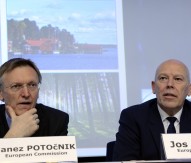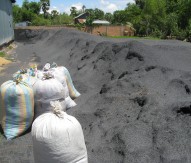
Climate-KIC kicks off first Start-up Tour of 2014 in Israel
Climate-KIC has begun its first Start-up Tour of 2014 in Israel, as part of its role in supporting European cleantech innovators to expand their business opportunities outside of Europe.
From 25-28 May, 12 of Europe’s most promising cleantech start-ups from across the Climate-KIC community will get a crash course in cleantech entrepreneurship. The select group of European cleantech innovators and entrepreneurs will also be given the chance to explore the market in Israel, find potential customers and partners, and look for investment opportunities.
The Israel Start-up Tour is the first time Climate-KIC has expanded its activity into the region as the organisation looks to help its start-ups tap into the success of Israel’s cleantech industry. Israel has become a thriving start-up hotspot over the past ten years, with a strong focus on cleantech.
Frans Nauta, deputy director of entrepreneurship at Climate-KIC, commented: “At Climate-KIC, we have a clear assignment: support Europe’s most promising cleantech start-ups to become tomorrow’s leading firms in fighting global climate change. Israel is undoubtedly a great place for cleantech businesses and we firmly believe that Israel can play a valuable role in contributing ideas and insights to Climate-KIC’s community.”
The tour started with a course, ‘Doing business in Israel for cleantech start-ups’, hosted by entrepreneur Eyal Banjamin at the Tel Aviv College. At the end of the course, the participating start-ups pitched their businesses to a group of cleantech VCs for the chance of direct funding opportunities.
The tour concludes at Technion, the Israel Institute of Technology in Haifa, where the participants will get an insight into its latest cleantech research. The 12 participating start-ups have been selected from Climate-KIC’s Accelerator Programme and feature a wide range of climate technologies – from battery technology for wind and solar energy, to electric vehicle charging infrastructure, aquaponic farming schemes, and low cost mobile hydro power plants.






